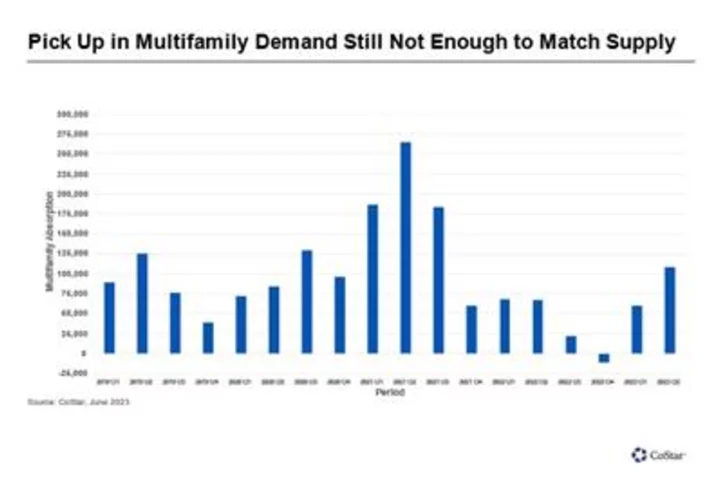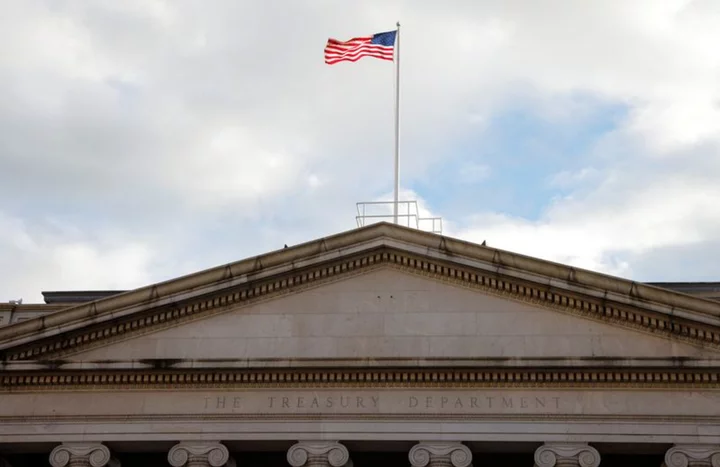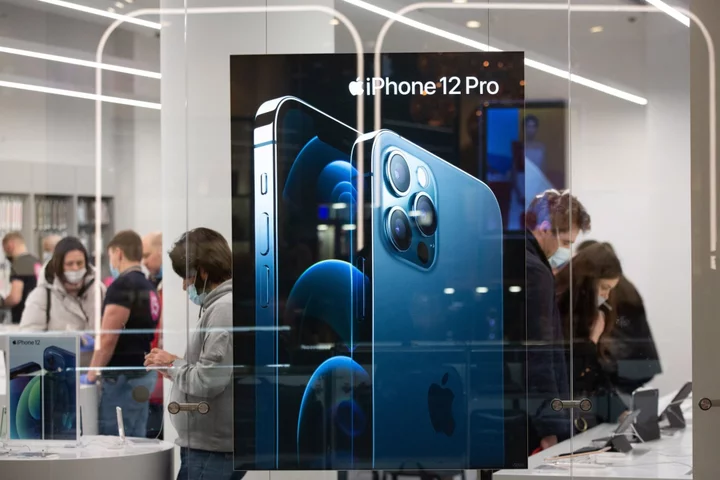
Apartments.com Publishes Rent Growth Report for Second Quarter of 2023
WASHINGTON--(BUSINESS WIRE)--Jul 12, 2023--
2023-07-13 04:22

Temu-Owner PDD Soars 12% After Sales Defy Chinese Gloom
PDD Holdings Inc. revenue rose a stronger-than-expected 66% after the company behind hit shopping app Temu spent to
2023-08-29 21:50

Rhinostics Selected to Exhibit RHINOstic® Automated Swab Platform at Vizient Innovative Technology Exchange
WALTHAM, Mass.--(BUSINESS WIRE)--Aug 10, 2023--
2023-08-10 20:17

India’s Moon lander just detected movement below the lunar surface
India’s Vikram lunar lander has recorded movement below the surface of the Moon – but it’s probably not aliens. Experts think the movement is seismic activity – the lunar equivalent of earthquakes. It is the first time humans have detected the so-called moonquakes since the 1970s. The new activity was recorded by the Vikram lander’s onboard instrument for lunar seismic activity, a piece of kit designed “to measure ground vibrations generated by natural quakes, impacts, and artificial events,” the Indian Space Research Organization (ISRO) said. India’s Chandrayaan-3 mission saw it land the Vikram and its sister craft, the Pragyan rover, last month, becoming the first nation to land near the Moon’s little-explored South Pole. It also makes India just the fourth nation to land on the Moon, alongside the US, the former USSR and China. The seismic activity is the first recorded since the US Apollo programme, which ended in 1977. Those recordings yielded valuable data about the Moon’s makeup. Scientists have been able to theorise that the Moon has an inner core which is much less dense than the Earth’s and which is about 500km across. On Earth, seismic activity is caused by the shifting of the planet’s tectonic plates. But on the Moon, things are a bit different. The quake could be caused by thermal activity from the Sun, or by tidal stresses caused by Earth’s gravity, cracking the planet and causing the pieces to rub together. The team noted that the event is currently under investigation. Sign up to our free Indy100 weekly newsletter Have your say in our news democracy. Click the upvote icon at the top of the page to help raise this article through the indy100 rankings.
2023-09-07 19:20

California state leaders vow to provide textbooks for students after a school board rejected a social studies curriculum
After a Southern California school district rejected a state-endorsed social studies curriculum that includes material on gay rights, top state officials are vowing to buy a textbook in question and distribute it to students before the new school year.
2023-07-14 16:50

Games-U.S. casts big net into Pan Am pool in quest for Olympic gold
By Steve Keating SANTIAGO In a bid for Olympic medals, U.S. Swimming likes to cast a big net,
2023-10-26 06:59

Birmingham Airport to transform passenger security experience with new CT screening technology
LONDON--(BUSINESS WIRE)--May 16, 2023--
2023-05-16 14:20

Corporate ESG Claims to Soon Face Audits to Address Greenwashing Fears
The disclosures that companies make about their green credentials will be evaluated by new global audit standards that
2023-08-03 01:56

ZincFive Wins Mission Critical 2023 Top Tier Product Award in the UPS Category
PORTLAND, Ore.--(BUSINESS WIRE)--Aug 11, 2023--
2023-08-11 22:29

NYC Air Quality Drops to Unhealthy Levels — But Canadian Fires Aren’t to Blame
New York City’s air quality dropped to unhealthy levels Wednesday morning, but Canadian wildfires aren’t the main culprit
2023-07-05 20:46

Wayfinder Early Access Kicks Off With Multiple Founders Packs Available to Players
AUSTIN, Texas--(BUSINESS WIRE)--Aug 17, 2023--
2023-08-18 01:16

Mysterious ancient engravings uncovered by drought in the Amazon
The discovery of beautiful, ancient rock engravings has been a bitter-sweet experience for experts in Brazil’s Amazon. On the one hand, the carvings offer an exciting insight into the first people who inhabited the region. On the other, it is a worrying signal that the Negro River, which runs through the region, may soon cease to exist. An extreme drought in parts of the rainforest has led to a dramatic drop in river water levels – with the Negro’s flow reaching its lowest level for 121 years last week. The drop exposed dozens of normally submerged rock formations featuring carvings of human forms that may date back some 2,000 years. Livia Ribeiro, a longtime resident of the Amazon's largest city, Manaus, said she heard about the rock engravings from friends and wanted to check them out. "I thought it was a lie,” she told the AFP news agency. “I had never seen this and I've lived in Manaus for 27 years.” She admitted that whilst scientists and members of the public were delighted at the discovery, they acknowledged that it also raised unsettling questions. "We come, we look at (the engravings) and we think they are beautiful. But at the same time, it is worrying,” she said. “I also think about whether this river will exist in 50 or 100 years.” Drought in Brazil's Amazon has drastically reduced river levels in recent weeks, affecting a region that depends on a labrynth of waterways for transportation and supplies. The Brazilian government has sent emergency aid to the area, where normally bustling riverbanks are dry and littered with stranded boats. According to experts, the dry season has worsened this year due to El Niño, an irregular climate pattern over the Pacific Ocean that disrupts normal weather, adding to the effect of climate change. Jaime Oliveira, of the Brazilian Institute of Historical Heritage (Iphan), said the engravings comprise an archaeological site of "great relevance”. They are located at a site known as Praia das Lajes and were first seen in 2010, during another period of drought (which was not as severe as the current one). Most of the engravings are of human faces, some of them rectangular and others oval, with smiles or grim expressions. "The site expresses emotions, feelings, it is an engraved rock record, but it has something in common with current works of art," Oliveira said. For Beatriz Carneiro, historian and member of Iphan, Praia das Lajes has an "inestimable" value in understanding the first people who inhabited the region, a field still little explored. "Unhappily it is now reappearing with the worsening of the drought," she said. "Having our rivers back (flooded) and keeping the engravings submerged will help preserve them, even more than our work." Sign up for our free Indy100 weekly newsletter Have your say in our news democracy. Click the upvote icon at the top of the page to help raise this article through the indy100 rankings
2023-10-23 22:23
You Might Like...

US reviews record number of foreign investment transactions in 2022

xQc: 2023 net worth of the controversial Twitch streamer

UK Set for Hottest June Ever as Climate Change Takes Hold

Dragonfly-backed Crypto Trading Platform Finblox (FBX) Token Sells Out, Unveils FinGPT AI Tool Ahead of Launch

Apple Plans iPhone 12 Update to Address French Radiation Issue

Who was behind 'The Joe Rogan AI Experience' podcast? Was it successful?

Self-driving cars will cause ‘moral panic’ – transport minister

Republican congressman faces wrath of DeSantis campaign with call to ‘correct’ Black history standards
